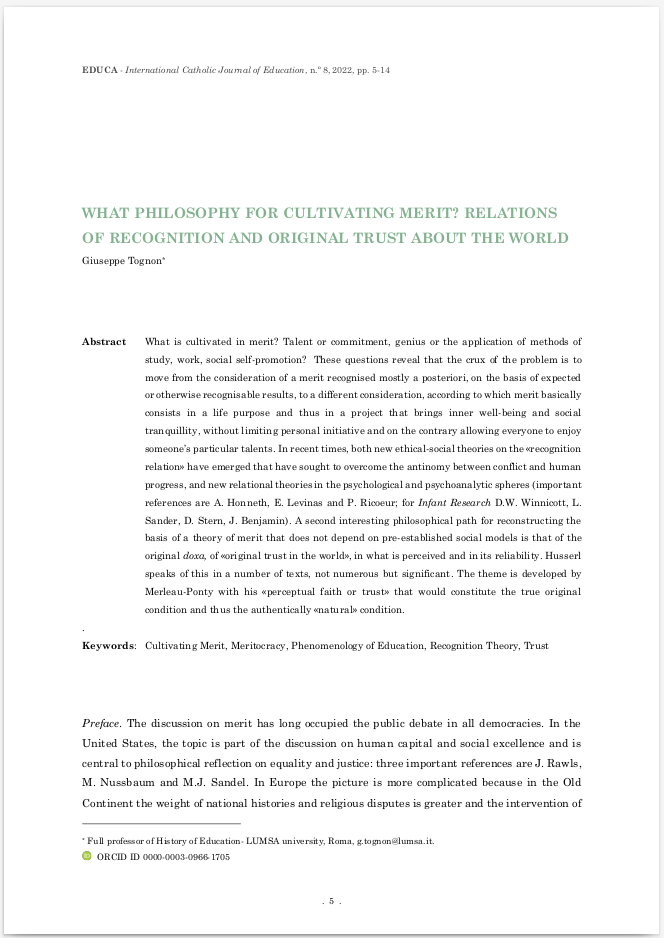What philosophy for cultivating merit? Relations of recognition and original trust about the world
Main Article Content
Abstract
What is cultivated in merit? Talent or commitment, genius or the application of methods of study, work, social self-promotion? These questions reveal that the crux of the problem is to move from the consideration of a merit recognised mostly a posteriori, on the basis of expected or otherwise recognisable results, to a different consideration, according to which merit basically consists in a life purpose and thus in a project that brings inner well-being and social tranquillity, without limiting personal initiative and on the contrary allowing everyone to enjoy someone’s particular talents. In recent times, both new ethical-social theories on the «recognition relation» have emerged that have sought to overcome the antinomy between conflict and human progress, and new relational theories in the psychological and psychoanalytic spheres (important references are A. Honneth, E. Levinas and P. Ricoeur; for Infant Research D.W. Winnicott, L. Sander, D. Stern, J. Benjamin). A second interesting philosophical path for reconstructing the basis of a theory of merit that does not depend on pre-established social models is that of the original doxa, of «original trust in the world», in what is perceived and in its reliability. Husserl speaks of this in a number of texts, not numerous but significant. The theme is developed by Merleau-Ponty with his «perceptual faith or trust» that would constitute the true original condition and thus the authentically «natural» condition.

